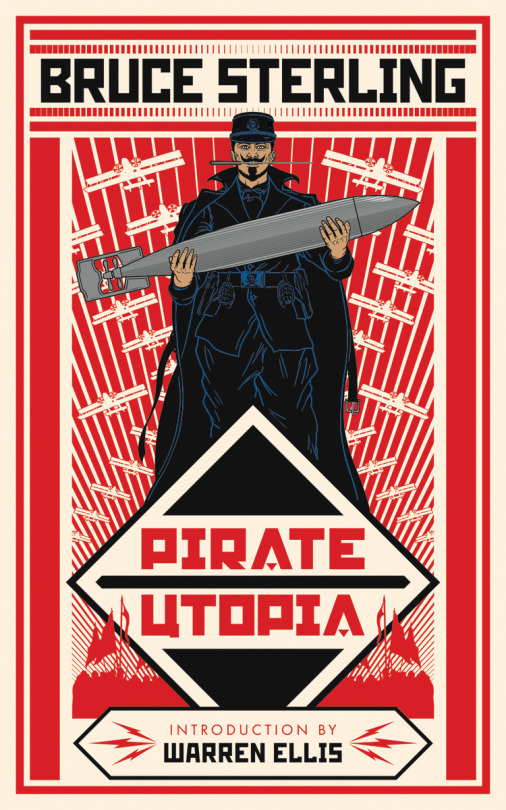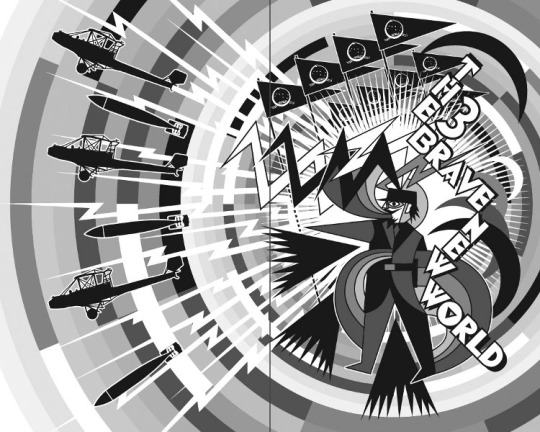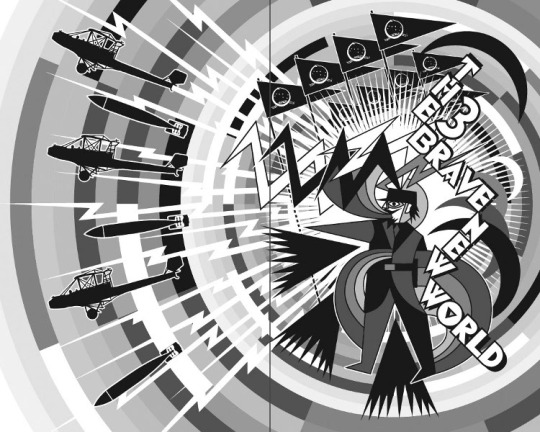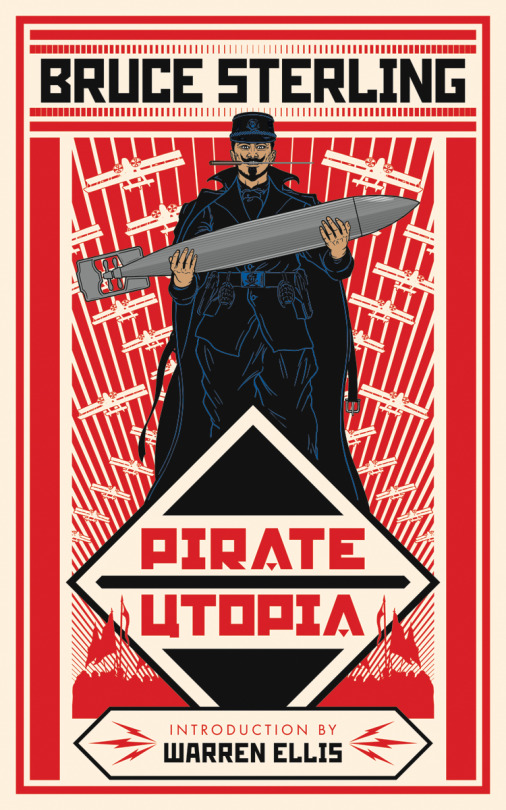With the beautiful PIRATE UTOPIA, Bruce Sterling is Fritz Lang directing BUCKAROO BANZAI
The reviews of Bruce Sterling’s Pynchonesque PIRATE UTOPIA come motoring in.

At BOING BOING, Cory Doctorow praises the book.
Between 1920 and 1924, the Free State of Fiume was a real-world “pirate utopia,” an ungoverned place of blazing futurism, military triumphalism, transgression, sex, art, dada, and high weirdness. In Bruce Sterling’s equally blazing dieselpunk novella PIRATE UTOPIA, the author turns the same wry and gimlet eye that found the keen edges for steampunk’s seminal The Difference Engine to the strange business of futurism.
<snip>
But beyond the alt.history game of who’s that, and how’s that – fun as this is to play with everyone from Hitler to HP Lovecraft to Robert E Howard to Harry Houdini – the exciting thing about PIRATE UTOPIA is how exciting it makes weird politics, and how terrible. We’re living in a moment where politics have gone decidedly nonlinear, and there are wild swings that are smashing out the from every angle, then knocking out its frame and the wall it stood in for good measure. In an era in which both Bernie Sanders and Donald Trump can get a crack at the Oval Office, while a self-described dictator takes office in the Philippines and the UK falls under the leadership of a charmless, second-rate Thatcher, weird politics are all the rage and we can use any help we can get in understanding them.
Sterling’s PIRATE UTOPIA captures both the excitement and the shabbiness of Futurism and fascism, the sense of trembling anticipation and the terror of merciless technocratic rule where corruption is considered efficient and meritocratic. For all that this is a very cerebral story – much of the prose is distant and precise, like a Futurist’s oiled machine stamping out words – Sterling masterfully winds in all manner of blood and love and sorrow into the story, not to mention the odd belly-laugh.
This novella is a beautiful object, with the most amazing super-modernist black and white interior illustrations and a cover that beggars belief. In addition to Sterling’s novella, the covers contain a typically grumpy and thoughtful introduction from Warren Ellis, an postscript by gonzo sf writer Chris Brown, an interview between Rick Klaw and Sterling, and a note by Sterling’s Italian editor. All this metadata fleshes out the tale in a most satisfying way, giving it the context it deserves, tracing the connections between sf, Futurism, war, fascism, and the weird times we find ourselves living in.

Paul Di Fillipo for Locus Online appreciates the novella.
Ultimately, I would
call this book Sterling’s Pynchon homage. This whole text could
almost be wedged sidewise into GRAVITY’S RAINBOW without disturbing
the Pynchon flow. And the motley cast in Fiume recalls “Benny
Profane and the Whole Sick Crew” from V.. But Sterling is no mere
Pynchon-wannabe. His voice offers a unique timbre that blends the
coolly intellectual Fabianism of Wells with the gonzo absurdity of
the Spider pulps. This is Fritz Lang directing BUCKAROO BANZAI.Despite its solid anchorage in the events and attitudes of the 1920s, however transmogrified, this book speaks to similar circumstances in other eras. We hear the speeches of Occupy Wall Street and the Ninety-nine Percenters when Secondari preaches that the pirates should “Kill the ruling class! Erase them! Liquidate them without pity. Build the new world on their bones. It’s the only way to make anything that’s fresh and clean!” And we are surely mean to think of the Age of Aquarius when Secondari inveighs against too much emphasis on “lifting the skirts of pretty girls, after we give them votes, and hashish, and jazz records!” Hippy heaven indeed!
Sterling’s primal message, I think, is that all these affiliated interstitial pockets of chaos and liberation are forever fleeting and temporary, and must be enjoyed while they flourish, for however brief a span.
Lastly, I have to marvel at the superbly gorgeous design and illustration work by the legendary John Coulthart, who conjures up the esthetics of this period with a 21st-century overlay.

Megan M. McArdle &
Kristi Chadwick on LIBRARY JOURNAL include PIRATE UTOPIA in SF/Fantasy Reviews, November 15, 2016.
The fused edge between alternative history and historical fact elevates this shorter work by cyberpunk pioneer Sterling.

For AUSTIN AMERICAN-STATESMAN, Joe Gross reviews PIRATE UTOPIA.
Or maybe he is just experimenting with format. His last novel, LOVE IS STRANGE (2012), was a Kindle-only joint, and this one, a novella, is a seriously odd alternate history that includes a post-World War I Italian utopia (Sterling now lives in Turin, Italy), flying boats, Harry Houdini as a secret agent, and no Hitler building up power in Germany (even if D’Annunzio is still around). PIRATE UTOPIA is Sterling in serious entertainment mode, mashing up the real and fictional with Robert Coover-like intensity and geeky joy. Complete with a solid introduction by Warren Ellis (whose career —which encompasses comics, fiction and plenty of lectures — is a bit Sterling-ish) and an interview with the author himself.
For more info on PIRATE UTOPIA, visit the Tachyon page.
Cover and illustrations by John Coulthart


